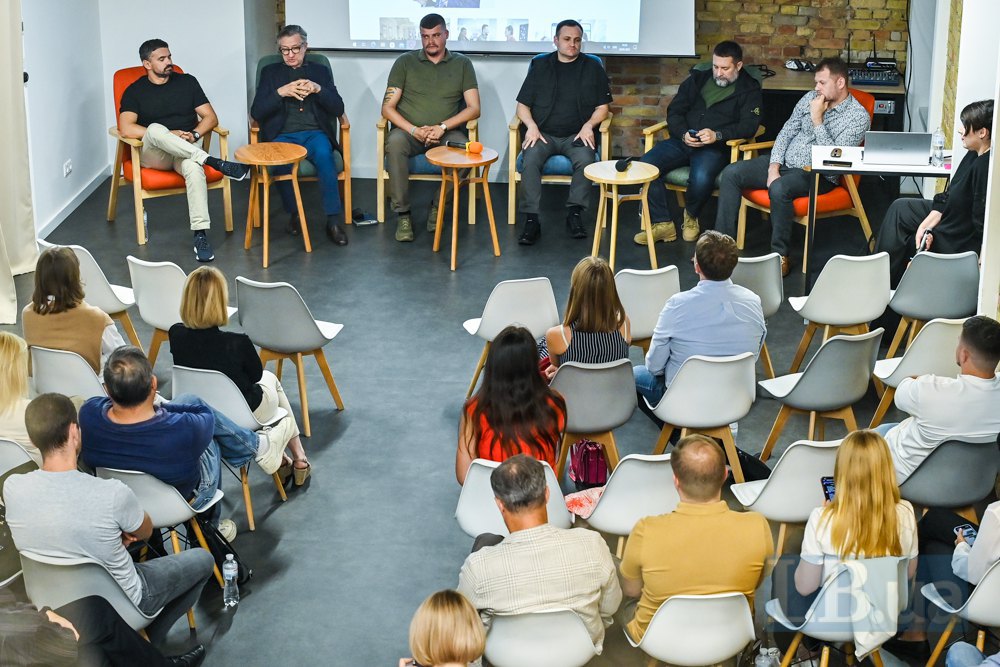
Petro Andryushchenko, an adviser to the mayor of Mariupol, was the first to speak. His remark concerned the punishment of those who consciously chose to live under occupation. According to him, people who had to leave their homes want justice. And for them, it is more important than economic or infrastructural recovery.
"We are in touch with evacuated people, with people under occupation and understand their needs. The top issue is the issue of justice. People want to know how we will live when we return to those who are in the occupied city today.
Is it a betrayal or help when our doctors treat the occupiers? Will our entrepreneurs who try to sit on two chairs be punished or not? We do not hear these questions, but they are important. Without answering them, there will be no de-occupation," Andryushchenko said.
He also called for an honest answer to the question of whether those who have lived in the temporarily occupied territory for nine years are citizens of Ukraine and whether they have the right to Ukrainian citizenship.
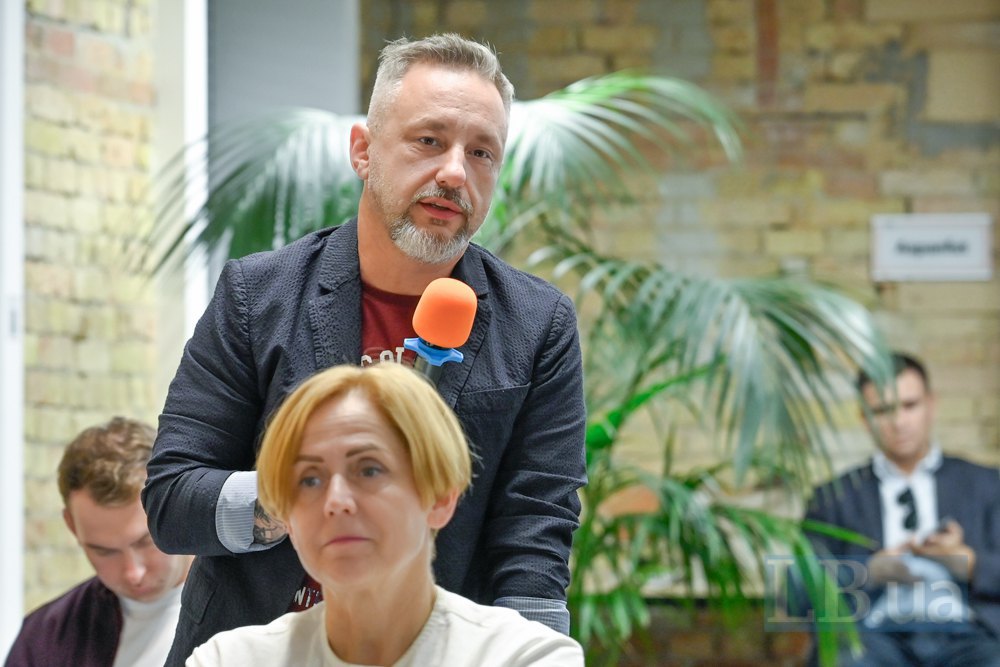
"Those who have lived under occupation for nine years, are they really citizens of Ukraine? I'll tell you: those who have lived under occupation in Mariupol for almost a year and a half and had average views on the future are already saying that things are not so bad. In another six months, they will say otherwise. Another six months, and they will say something else. So maybe it's time to raise the question of revising Ukrainian citizenship for people under occupation? Believe me, this will not be a problem for the pro-Ukrainian population. Not at all. On the contrary. Maybe we should really discuss what the responsibility will be for people who deliberately return to the occupation or earn money there?" Andryushchenko said.
He is convinced that it is time for such questions and answers. And the opinion of our partners should not be decisive in this.
"We have been constantly communicating with our partners – the French and Germans – for eight years. They ask us about the de-occupation of Donetsk, but they don't like to answer questions concerning themselves. What happened to Germany after the Berlin Wall came down? What happened to France in the first year of de-occupation after World War Two? When they try to impose any rules on us, they forget what they did themselves," Andryushchenko says. According to him, people are ready to return (to the de-occupied territories - Ed.), live in trailers and rebuild their cities, but they need answers to these questions.
Volodymyr Vyatrovych, MP from the European Solidarity party and historian, believes that Ukrainian society, which raises the issue of punishment and justice for the residents of the TOT, has not properly processed why the events of 2014 became possible.
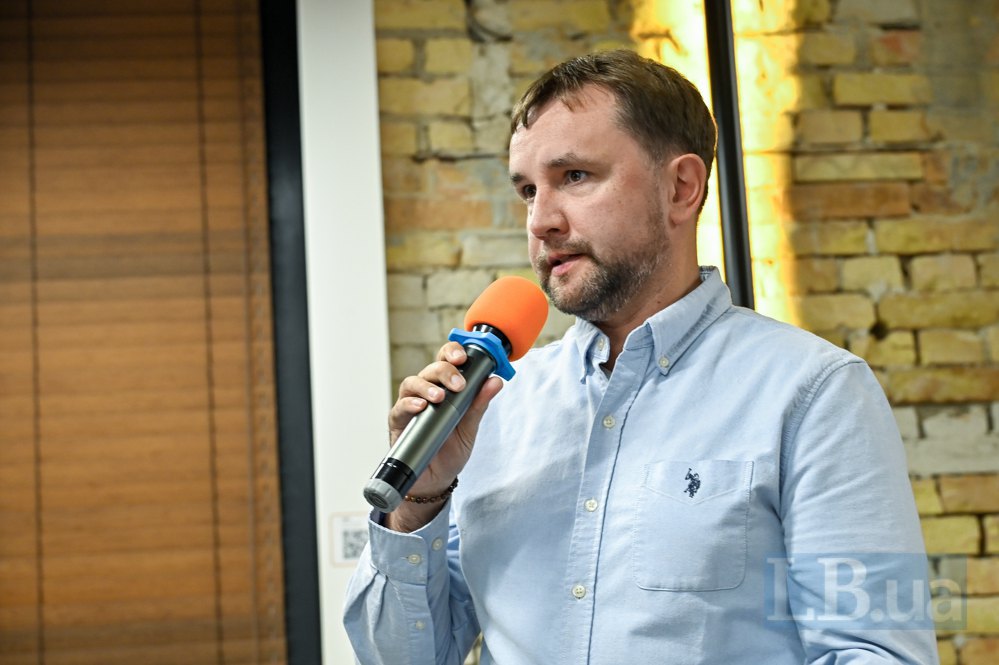
"Why did Russia not just enter but gained a foothold and occupy these territories? What did we lack? History has thrown us into a very terrible, bloody experiment that makes it possible to draw certain conclusions. Why did Russia not stay in Kyiv Region? Why didn't Russia stay in other territories and try to seize them after 24 February 2022?
What factor prevented Russia from doing so? There are many, but one important one, in my opinion, was described by Mr Kuleba when he talked about the Prymachenko Museum. (Deputy Head of the Presidential Office Oleksiy Kuleba earlier spoke about the de-occupation of the town of Ivankiv, Kyiv Region: "We arrived with the military, people greeted us with the utmost friendliness, everyone was crying, it was touching and emotional. And the first thing they told me was not about food, not about the dead people, not about the loss: 'They destroyed the Maria Prymachenko Museum." - ed. note) This factor is national identity. That is, the sense of self of Ukrainians and the fact that this must be protected. Unfortunately, over the centuries of history, Russia has managed to uproot this, to reduce it very much in the territories of Luhansk and Donetsk regions," said Vyatrovych.
In his opinion, it is necessary to talk about the re-Ukrainianisation of the TOT, as it is a security issue.
"Let's be honest: where Ukrainian national identity dominates, there will be Ukrainian territory. Where there is no such identity, where Russia will be able to rely on people who think of themselves as part of the 'Russian world', there will be a 'Russian world'. Therefore, this issue should be among the main ones in the post-war deoccupation policy. And it should require enormous resources," the historian believes.
He also noted that in the context of reconstruction, it is important to talk about creating special conditions for young people who are ready to work in the government, as teachers, librarians, etc. in the liberated territories.
"These will be enormous resources. The most important thing here is to understand that we, Ukrainians, will be required to contribute a significant part of this resource, because the protection of Ukrainian culture is the mission of the Ukrainian state," concluded Vyatrovych.
Ukrainian philosopher Yevhen Bystrytskyy, Doctor of Philosophy, followed up on national identity. He suggested thinking not about how the state will rebuild the economy or infrastructure, but what people themselves will do there.
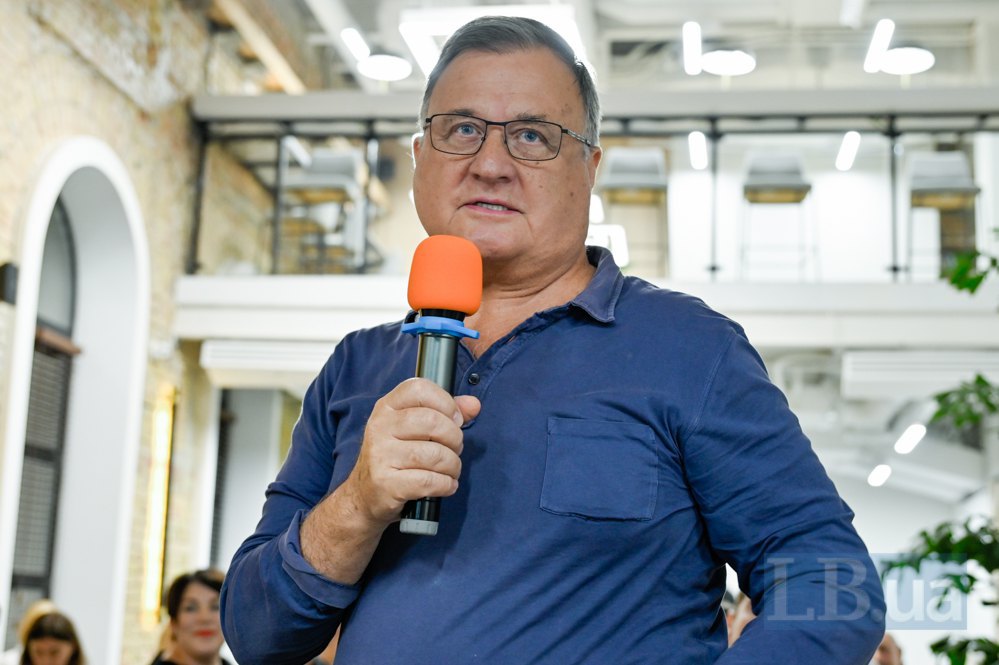
"In London, at the conference on recovery, Western participants constantly emphasised that recovery is not only about rebuilding, it is also about reforms. And that recovery is the work of citizens themselves. The question is: what can we offer citizens?" said Bystrytskyy. He believes Ukraine can offer conditions.
"We need to talk about principles. The first one is related to the concept of national identity, which consists of two dimensions: legal civic identity (and ours is a European democratic identity) and national culture. They go hand in hand. One does not exist without the other. If one contradicts the other, the state falls apart.
Citizens – those who will come – must be offered freedoms and legal opportunities to think for themselves about what to restore and how to restore it. Of course, I am speaking very idealistically, because we will have to use donor and government money for reconstruction. But a national identity culture will be supported and implemented on the basis of democratic identity. There is no other way. You cannot force people to be Ukrainians if there is no freedom. They have to do it automatically, naturally, of their own will," he said.
Olesya Ostafyeva, a Kyiv-based entrepreneur originally from Donbas, also sees self-identification in the temporarily occupied territories as the biggest challenge for the state. She lived in Donetsk for 20 years, hasn't been back for the last ten, but has connections and understands what's going on there.
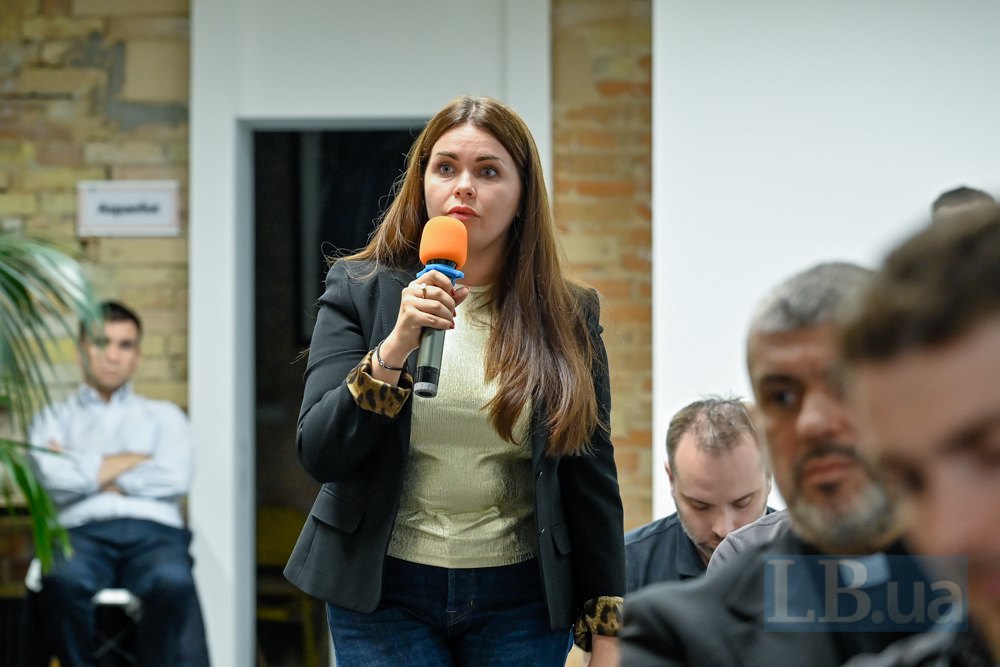
"We can build super economic conditions. We can build security. And it will be cool to live there. And those who live there now will be happy to stay. But the main issue is self-identification. They will not identify themselves as Ukrainians. And this is our biggest challenge. As long as people in these territories do not consider themselves Ukrainians, we will live in constant danger, in the constant possibility of this situation repeating itself.
Because Russia and the "Russian world" came on prepared ground. Where people were not mentally ready to accept Russia, it was unable to gain a foothold. This is the main thing we need to understand," Ostafyeva added.
Dmytro Bilotserkovets, a member of the Kyiv City Council and a native of Sevastopol, agrees. He is convinced that the state must learn from its mistakes so that Russia does not return again.
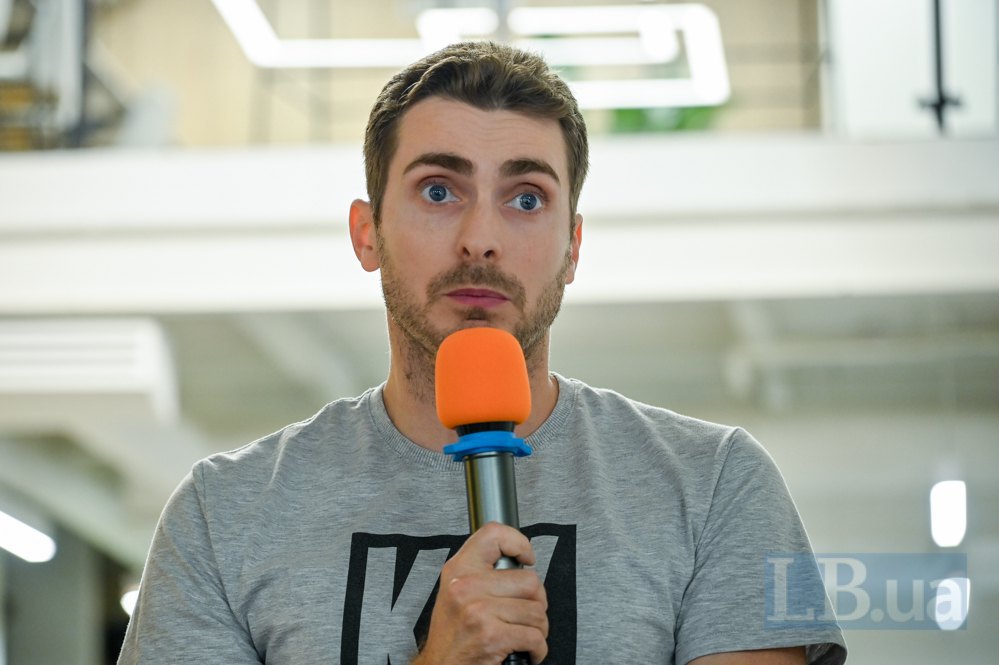
"Firstly, I believe that Ukrainian Donetsk and Luhansk regions will be de-occupied, it will happen 100%. But we must not forget that sooner or later Russia will try to come again. To understand what factor will influence this, I will quickly tell you what happened in Sevastopol.
In 2005, a hybrid war began. Russia has always started this way. They invested 2-3 million dollars a year in funding pro-Russian organisations. They also bought up Ukrainian media and forums and manipulated them. The state did not help us, civil society activists, in any way in Sevastopol. We did everything ourselves. And the main factor that is a problem for all of us is that the state must influence these factors, it must learn from mistakes. We need to work together not only on the strategy of deoccupation, but also on the confrontation in the future," Bilotserkovets said.
An MP from the Servant of the People party, Yelyzaveta Yasko, invited the audience to imagine for a moment that we suddenly find out about the de-occupation of the temporarily occupied territories, the way it happened with Nagorno-Karabakh, whether we have an answer to the question of where people from TOT will study and receive medical care? She spoke about a girl who wants to leave an occupied area to study in the territory controlled by Ukraine, but the solutions that Ukraine has for her are raw and have not yet been worked out.
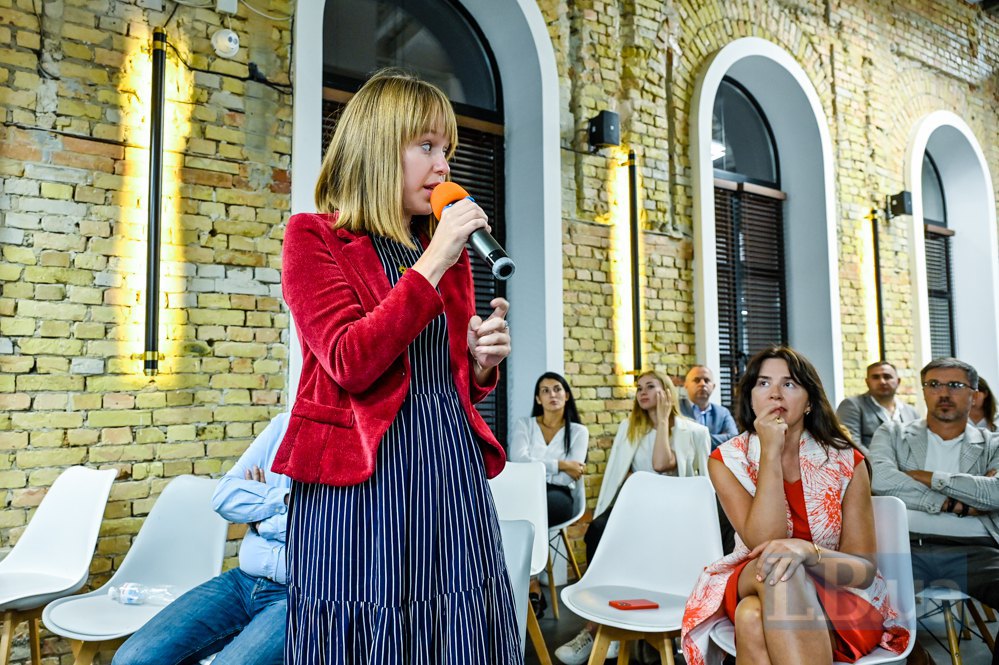
"We have certain solutions, but they are, to put it mildly, incomplete, they are imperfect. How are we going to train these people? Even when we develop these solutions, we need people to implement them. I'm worried that the judiciary will not have trained transitional justice experts who will decide whether a person is a traitor or not. Can you, for example, study at a Ukrainian university, or do you have to go through an integration programme for another year or two?
We need a lot of moral leadership. Because everything will not be perfect. We are talking about mercy, and I do not believe that 100% of people will be able to accept this mercy. Moral leadership is very important for the transition period. We need specialists. I believe that we should already invest in training such specialists. Otherwise, there will simply not be anyone who can implement all this," the MP argued.
Former Foreign Minister Pavlo Klimkin raised another important issue – international advocacy for the deoccupation of the territories.
"How can we convince President Biden to invest in the liberation of Donbas and then in its restoration? Everything is clear with Crimea – it is of geostrategic importance. Or imagine that I am President Xi (Xi Jinping, Chinese President - Ed.), convince me in a couple of minutes why I should put pressure on Putin to leave Donbas to Ukraine. How can I do that if it's not clear what's up with the people, what the model is? We don't need to be convinced – Ukraine is above all for us, but not for them," Klimkin said, stressing that advocacy for the return of the temporarily occupied territories should be brought to the international level to convince the world "that Donbas, its liberation and then reset is a priority that the West cannot live without".








